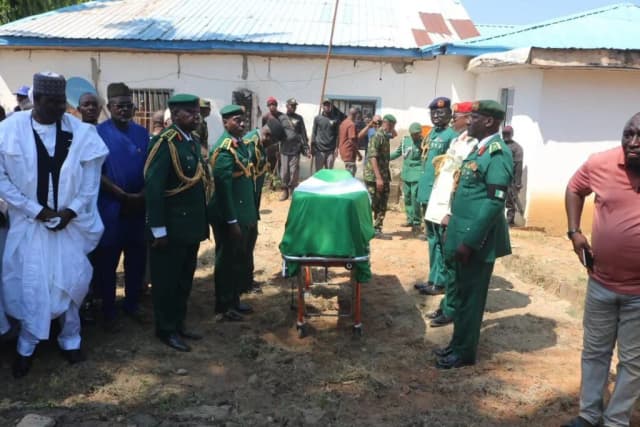
NBTE Executive Secretary, Prof Idris Bugaje
By FUNMILAYO ADEYEMI
The National Board for Technical Education (NBTE) has urged polytechnics and Technical and Vocational Education and Training (TVET) lecturers to produce functional, locally developed Artificial Intelligence (AI) and machine learning models.
The Executive Secretary of NBTE, Prof. Idris Bugaje, gave the charge at the International Conference on Applied Interdisciplinary Science, Technology, Engineering, Mathematics and Agro-Engineering (STEMA) in Abuja on Wednesday.
Bugaje was represented at the event by his Technical Assistant on ICT, Dr Babangida Albaba.
He said the conference was designed to help lecturers progress from theory to practical by developing, testing and deploying customised AI models tailored toward Nigeria’s realities.
According to him, participants will not only present the AI, machine learning and data-mining models they have developed, but will also test them on a decentralised platform using a Raspberry Pi-based mini-robot.
This, he said, would allow them to evaluate performance and make real-time adjustments.
“This conference gives lecturers the opportunity to build and run their own models, see how they function, examine parameters and make improvements.
“It is both theoretical and highly practical,” he said.
Bugaje noted that one of the major challenges in AI development in Nigeria is the absence of local datasets.
He said that many existing datasets were foreign and do not reflect Nigeria’s unique socio-economic context.
“To train these algorithms effectively, we need Nigerian-based data. Foreign datasets cannot fully capture our realities.
“Developing a culture of proper data collection is crucial for producing relevant and productive AI solutions,” he said.
The executive secretary said that the deployment of the models to polytechnics would begin immediately.
“After the ongoing cohort, a second and final cohort will be held in April and May 2026, when all models are expected to be fully functional and ready for adoption by institutions across the country,” he said.
The NBTE boss said the board was collaborating with institutions in Ethiopia and other countries to ensure technology transfer, shared learning and the adoption of globally acceptable AI frameworks adapted for African use.
He expressed confidence that Nigeria’s polytechnics and TVET sector were positioned to drive Africa’s leadership in decentralised AI technologies.
Bugaje pointed out that the polytechnic system remained the engine room for applied research and technical skills development.
Also speaking, Dr Mfon Okpok, the Consulting Lead and Nigerian AI expert at the MOC-LLC, Atlanta, said the initiative would give Nigerian students and researchers’ direct and local access to AI tools without relying on foreign-built models or expensive internet services.
Okpok said the decentralised system would allow polytechnics to host their own AI models on local servers, mainly Linux-based, enabling students to run machine learning queries through an intranet rather than depending on external online platforms.
“When you talk about decentralisation, it means we’re not going to pay money and access the internet to use AI models built abroad.
“We want to build custom models based on our own problems and make them available to students.
“Even if it is one or two models, we want them stored locally so students can query our server and get answers,” he said.
Okpok said that the approach would reduce cost, bridge the digital divide, and help polytechnic students develop confidence in their ability to build and understand AI systems.
He said the platform was designed to strengthen applied research and practical teachings in polytechnics.
On how Nigerian researchers could further contribute to national development, he emphasised the need for stronger focus on applied research that would directly address societal problems such as flooding, agriculture, security, and infrastructure.
“Basic research is done in universities, but polytechnics are for applied research.
“Applied research looks at real-world problems, defines them clearly, applies mathematical approaches, creates a model, and develops a prototype,” he said.
He said that Nigeria stands a strong chance of building homegrown AI solutions adding that models developed in foreign countries do not always address Nigeria’s unique environmental and socioeconomic conditions.
“With locally developed models placed on Linux systems and implemented practically using Raspberry Pi, Nigeria can be solid in AI development within the polytechnic system,” he said.
Okpok reaffirmed his commitment to ensuring that Nigerian students were not left behind in global technological advancement.
The News Agency of Nigeria (NAN) reports that the decentralised AI initiative is expected to be adopted across polytechnics nationwide as part of NBTE’s effort to modernise technical education and enhance digital capacity. (NAN)





















.webp&w=256&q=75)





NEWS EXPRESS is Nigeria’s leading online newspaper. Published by Africa’s international award-winning journalist, Mr. Isaac Umunna, NEWS EXPRESS is Nigeria’s first truly professional online daily newspaper. It is published from Lagos, Nigeria’s economic and media hub, and has a provision for occasional special print editions. Thanks to our vast network of sources and dedicated team of professional journalists and contributors spread across Nigeria and overseas, NEWS EXPRESS has become synonymous with newsbreaks and exclusive stories from around the world.